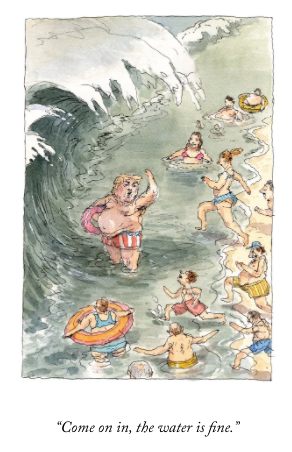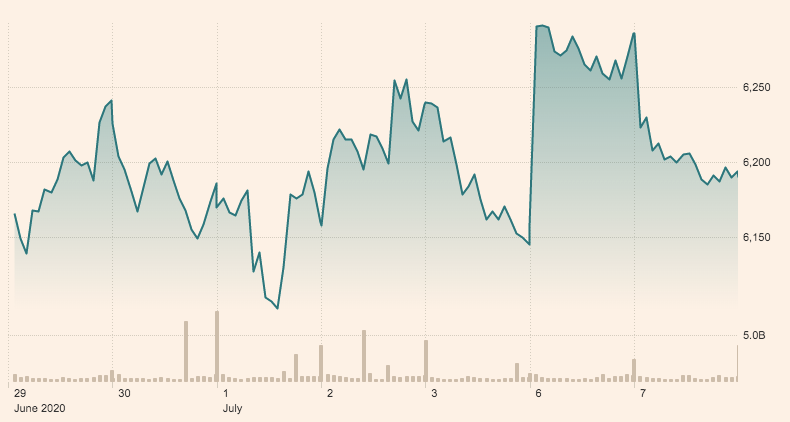- Charlotte Street Partners

- Jul 8, 2020
- 6 min read
An early summer's nightmare
Written by Javier Maquieira, senior associate
Edited by Adam Shaw, associate partner
Good morning,
Two days of travel, three flights, and a negative Covid-19 test. That’s what it took me to finally arrive in Galicia last week, where I was welcomed by temperatures of 30+ degrees Celsius and mandatory face coverings in the streets and public places. (Let me tell you, not a great combination.)
It is great to be home surrounded by family and friends. Yet, I can’t help but feel slightly anxious about the strange sense of normality here after four months of self-isolation in not-so-summery Edinburgh. Everywhere I go now, images of busy beaches, crowded terraces, and bustling high streets pile up in my mind as warning signs of what could go wrong.
And it’s no wonder. Not far from my hometown in Galicia’s coastal district of A Mariña, authorities imposed a local lockdown on Monday following a coronavirus outbreak, confining its 71,000 inhabitants and allowing only commuters to leave or enter the area. Coincidentally, the lockdown is to last five days until Friday, two days before Galicia goes to the polls to vote in regional elections.
The Galician president and conservative candidate for re-election, Alberto Núñez-Feijóo, has called for calm and said there is no “generalised problem in A Mariña”, despite reports of more than 120 new Covid-19 cases. Some opposition parties, including the Galician Nationalist Bloc and the Galician Socialists, want the vote to be postponed “given the dimensions of the outbreak” and have accused the Galician government of “irresponsibility” and “improvisation”.
However, Feijóo, who is projected to score his fourth election win with an absolute majority, isn’t likely to suspend or postpone the elections in Galicia or A Mariña, arguing that “going to the polling station is like going to the pharmacy”.
There are more than 40 active coronavirus outbreaks across Spain at the moment. Some of them were expected as the country eased its lockdown measures and welcomed tourists, with Fernando Simón, Spain’s chief epidemiologist, insisting that the virus is on retreat despite the flare-ups. But the cases of A Mariña in Galicia and Lleida in Catalonia, which has also seen a localised lockdown, are testing the ability of regional governments to deal with spikes.
What’s more, news that around just five per cent of the Spanish population has developed antibodies has been met with concern, casting doubt on the feasibility of herd immunity. Meanwhile, the OECD has warned that 56% of workers in Spain are “at risk” of contracting the virus – the highest number among the 24 countries analysed.
If there’s something to be learned as we emerge from (national) lockdowns in some parts of the world, it’s that we can’t afford to get lost in a mirage of sunbathing crowds and uncontrolled partying. Otherwise, we are doomed to see our dreams of recovery turned into a summer-long nightmare.
News
The Trump administration has confirmed the withdrawal of the United States from the World Health Organisation. The move, which has been officially notified to Congress and the United Nations, comes amid an increasing number of Covid-19 cases across the country in recent weeks. More than 130,546 Americans have now died from the virus.
The president of Brazil, Jair Bolsonaro, announced live on television yesterday that he has tested positive for Covid-19. The Brazilian premier has repeatedly downplayed the coronavirus pandemic and openly disregarded physical distancing. Brazil has now seen more than 1.6m confirmed coronavirus cases and 65,000 deaths, making it the second worst hit country after the US.
Data from the Office for National Statistics (ONS) suggests that only 22% of people that have tested positive for the coronavirus in the UK reported having symptoms, with health and social care workers appearing to be more likely to test positive. The data, based on a relatively small numbers of positive swab tests, also found that people from ethnic minority backgrounds were more likely to have been infected than white people.
Business and economy
Chancellor Rishi Sunak is due to unveil a £2bn government fund to create hundreds of thousands of “work placements” and training schemes for young people in today’s economic statement. Under this new initiative, which is part of the latest stage of the coronavirus recovery plan as the UK government starts to withdraw the furlough scheme, the Treasury will pay employers to hire people aged 16-24 for 25 hours a week for a period of up to six months.
New York state regulators have imposed a $150m fine on Deutsche Bank for ignoring “significant compliance failures” in relation to convicted sex offender Jeffrey Epstein. The bank, which processed hundreds of “suspicious” transactions for the late financier, said it "deeply" regretted its relationship with Epstein.
Forecasts by the European Commission suggest a deeper-than-expected recession for the European Union in 2020, with the UK economy projected to shrink by almost 10% this year. The eurozone is forecast to see an 8.3% drop in GDP in 2020 followed by a 5.8% rebound in 2021. According to Brussels, France, Spain and Italy are facing even steeper falls in output – 10.6%, 10.9% and 11.2% respectively.
Columns of note
Martin Wolf argues in theFinancial Times that the coronavirus pandemic has not transformed the world. Rather, it has deepened the divide between China and highlighted the failure of US leadership. In Wolf’s view, managing international relations peacefully will require western core values to succeed and flourish and China to prosper without corroding societies that uphold those values. (£)
Writing inThe Herald, Iain Macwhirter explains modern monetary theory (MMT), the leading economic theory on the left which favours government spending without having to worry about debt. Macwhirter makes the point that the UK chancellor, Rishi Sunak, has proven to be a devotee of MMT and is likely to keep borrowing and spending as “it is politically the sensible thing to do to avert a Covid depression”.

Source: The New Yorker
Markets
What happened yesterday?
London stocks closed weaker on Tuesday as concerns about an increase in Covid-19 cases mounted and the European Commission slashed its growth forecasts. The FTSE 100 ended the session down 1.53% at 6,189.00, while sterling was stronger both against the dollar by 0.61% at $1.2568 and versus the euro by 0.74% at €1.1128. In the US, the S&P 500 fell 1.1% to end a five-day positive streak.
In company news:
Whitbread finished 5.39% weaker as the Premier Inn owner said first quarter like-for-like sales slumped in the UK.
Micro Focus was 19.58% lower after reporting an interim loss as the software company recorded a goodwill impairment charge related to the coronavirus pandemic.
JD Sports Fashion closed in the red by 1.05%, as the retailer called for "rental realism" from landlords but reported record profit for the year to the start of February.
Plus500 was up 3.3% following the appointment of David Zruia as chief executive and as the contracts-for-difference platform reported a consistently high level of customer trading activity for the first half of 2020 after a costly spike.
What's happening today?
Finals
Liontrust Asset Management
U And I Group
AGMs
Boku, Inc.
First Derivatives
Steppe Cement
Int. economic announcements
(12:00) MBA Mortgage Applications (US)
(15:30) Crude Oil Inventories (US)
(20:00) Consumer Credit (US)

Did you know?
Seven per cent of all people who have ever lived are alive today, according to the Population Reference Bureau.
Parliamentary highlights
House of Commons
Oral questions
Wales
Prime Minister's Question Time
Ten Minute Rule Motion
Pregnancy and Maternity (Redundancy Protection) - Mrs Maria Miller
Financial Statement
Statement by the Chancellor of the Exchequer - Rishi Sunak
General debate
The Economy
Adjournment
Effect of Government funding on provision of free travel for under 18’s in London - Ruth Cadbury
House of Lords
Oral questions
Proposed border operating model for customs arrangements between the UK and the EU - Lord Berkeley
Representations from the EU on plans to prevent the importation of Xylella Fastidiosa - Lord Framlingham
Publication of Government White Paper on Social Care - Lord Dubs
Government investment and equity share in OneWeb and safeguards to ensure other shareholders and investors are not hostile to UK interests - Lord Bowness
Debate
Conduct Committee Report 'Amendments to the rules of conduct' - Lord Mance
Orders and regulations
Health Protection (Coronavirus, Wearing of Face Coverings on Public Transport) (England) Regulations 2020 - Baroness Vere of Norbiton
Northern Ireland Act 1998 (Section 75—Designation of Public Authority) Order 2020 - Lord Keen of Elie
Surrender of Offensive Weapons (Compensation) Regulations 2020 - Baroness Williams of Trafford
Scottish Parliament
In recess until 10 August (with the exception of 2, 9, 16, 23, 30 July and 6 August 2020, on which dates business may be programmed by the bureau)

Comments